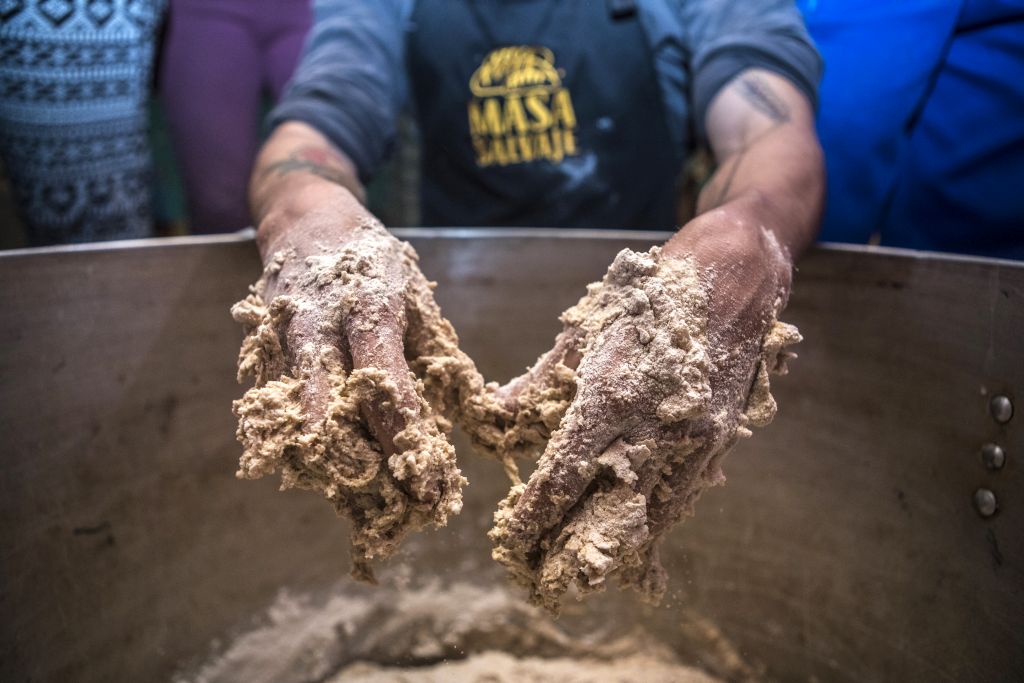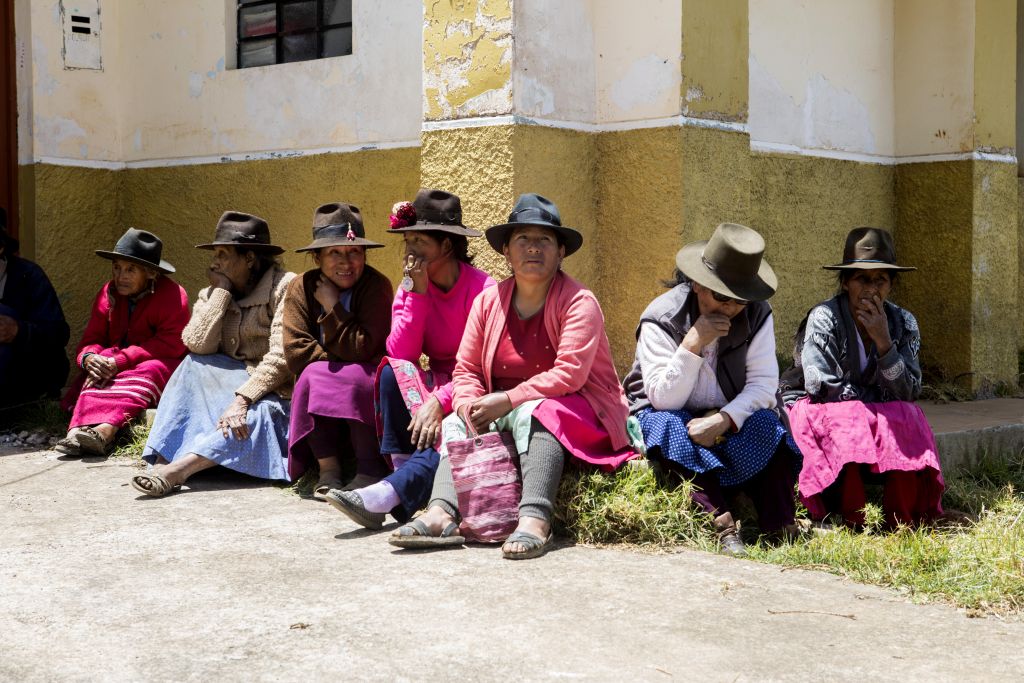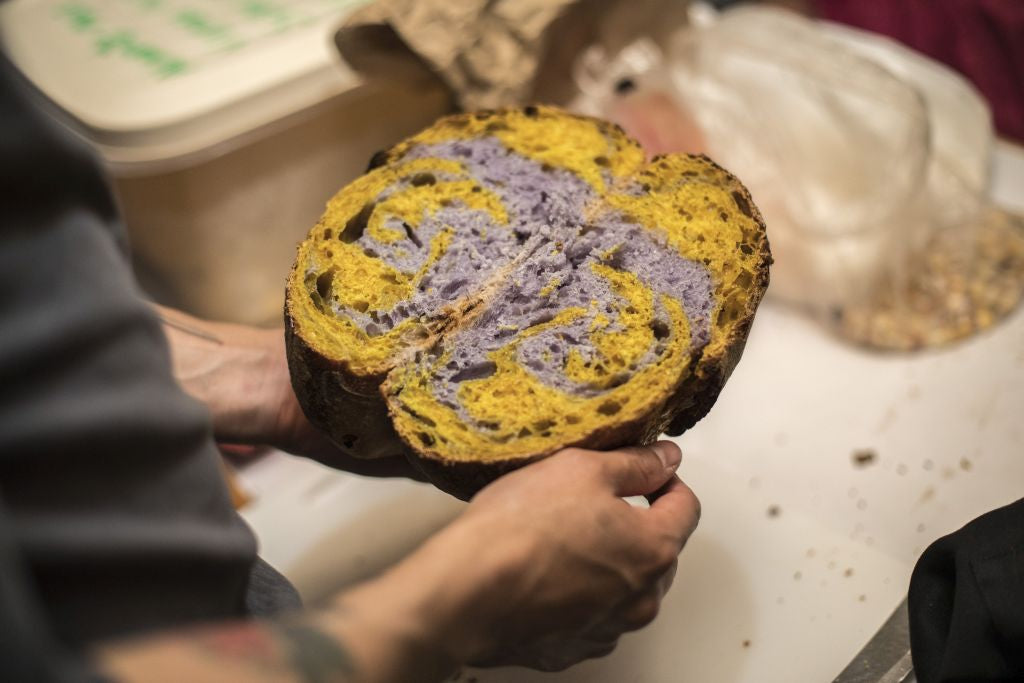In a world that’s increasingly adverse to carbs and gluten, Francisco Abanto is going against the grain with his artisanal bread and community outreach project, Masa Salvaje. Meaning “Wild Dough,” the initiative behind the Lima-based crusty loaves of bread is all about going back to the source — that is, to the farmers in the Andes of Peru who cultivate indigenous pseudo-grains such as quinoa, kiwicha (amaranth) and canihua.
A graduate of Peru’s National Agrarian University in Lima, Francisco began Masa Salvaje in 2016 as a solo project with two simple goals: sell artisan loaves incorporating ingredients with Peruvian origins, and offer workshops to city dwellers striving to learn a trade and reap the nutritional benefits of homemade sourdough bread.
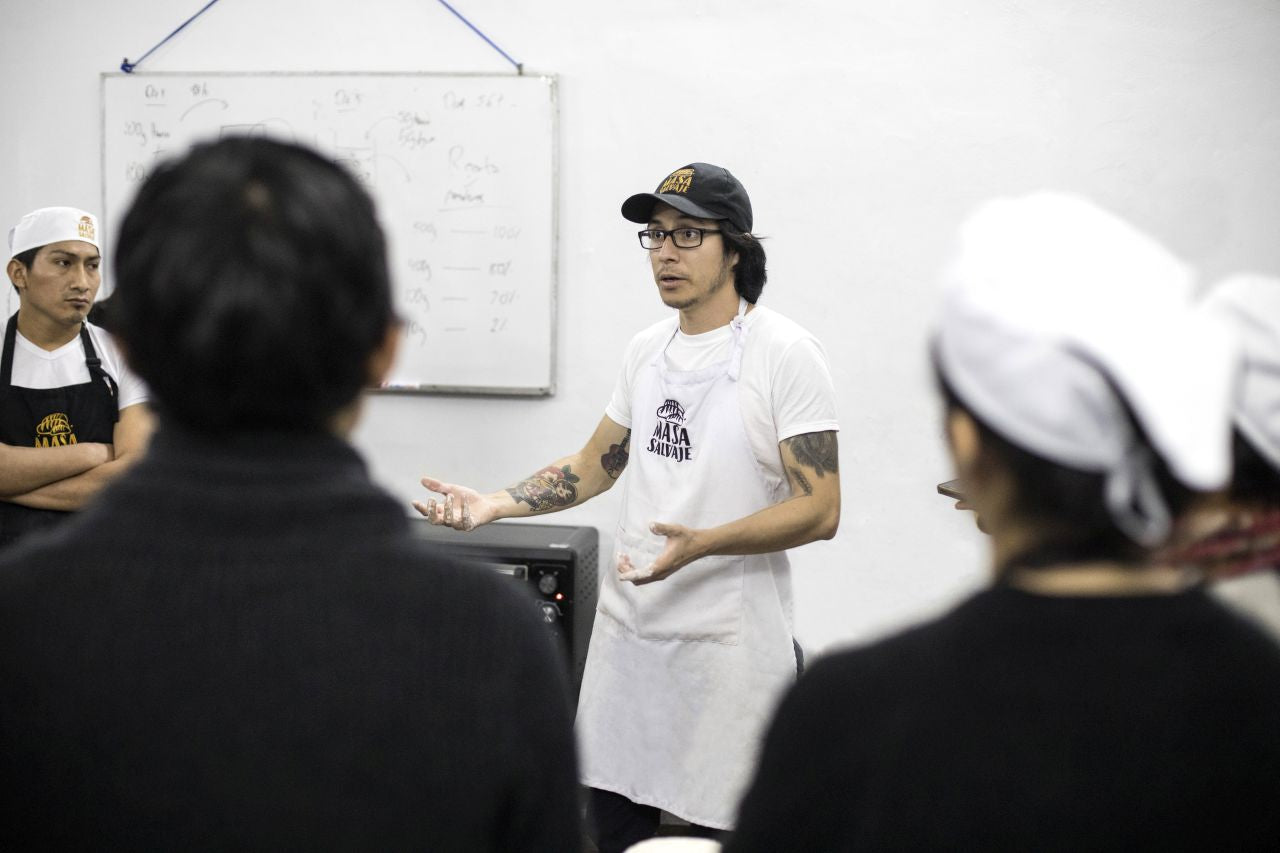
“I've always been fascinated by food processing and transformation,” he comments. “Something like bread can be so incredibly simple and complex at the same time.”
Though he continues to experiment with bread recipes featuring turmeric, chia, tarwi and a plethora of fine herbs, Francisco consistently produces loaves with a springy center and incredibly crackly crust.
With the technicalities of breadmaking perfected, it didn’t take long before the self-taught baker became aware that the same small producers who grew many of his baking ingredients were in need of empowerment, preservation of agricultural tradition, and dietary support to combat anemia.
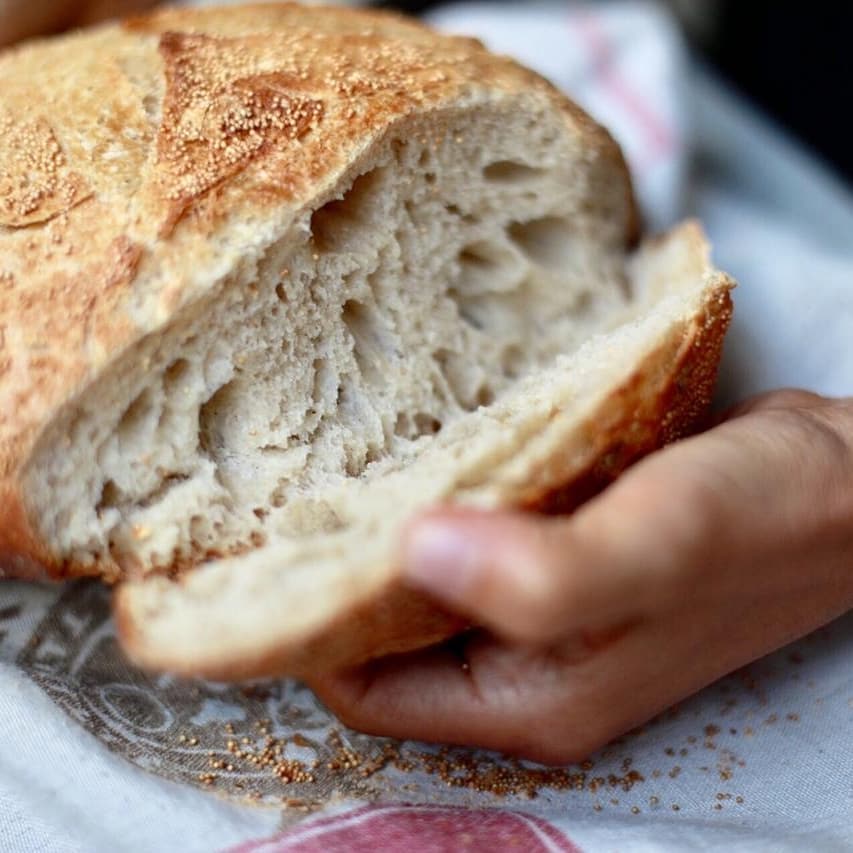
“We need to be concerned about food security and the people at the very beginning of the supply chain: the farmers in rural communities. Around the world, people in rural communities lack basic services, access to markets and struggle with malnutrition,” says Francisco.
We chat during a typical weekend for him in Lima, whereby his time is divided between baking, making deliveries and prepping for bread baking demonstrations. “On top of this, native crops are losing their value and being displaced by more commercial species such as corn and potatoes.”
Since 2018, Francisco and his dedicated team—including a cook, sommelier and social activist—have been working with a community in Abancay called Santa Isabel de Caype. Tucked amongst the rolling hills that characterize this Andean region, Santa Isabel de Caype’s elevation ranges from 2700 to 4500 meters above sea level, mingling with a collection of climates. This unique combination results in rich biodiversity, a haven for cultivating a variety of crops.
Reaching this secluded area is a full day’s journey beginning with an hour-long flight from Lima to Cusco, followed by about five hours by car along winding roads. Francisco found this out-of-the-way community with the help of a Peruvian NGO called IDMA (Instituto de Desarrollo y Medio Ambiente, or the Institute of Development and Environment) who encouraged him to empower the locals to once again embrace the region’s distinct potential.
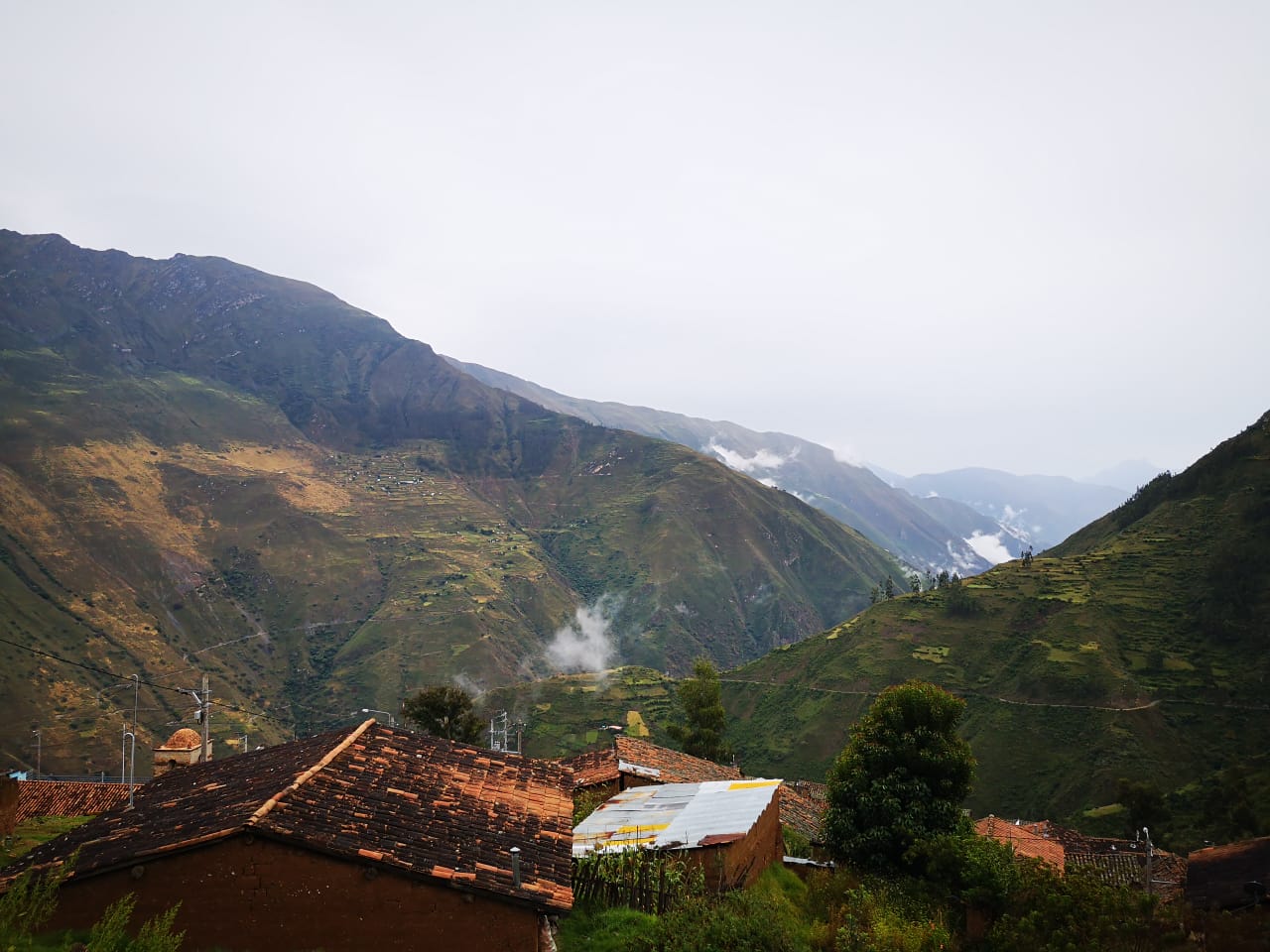
There are just 50 families in the Santa Isabel community, all of whom rely on agriculture as a means of income. Here, the silver lining of the scarcity in helping hands is that women and men are treated as equals. Regardless of gender, however, younger generations are losing interest in maintaining the family business and have expressed a desire to migrate to Peru’s capital city. Their reasoning to leave is not so much to escape agriculture, but to find more lucrative opportunities.
“If we can revive a functioning agricultural scene in Santa Isabel—and eventually other communities facing similar dilemmas—than perhaps the children of the farmers will see a reason to preserve the family tradition,” insists Francisco, adding that while members of the community have welcomed his team into their humble community, and have even shown interest in his ideas, the lack of any previous organization has been a challenge.
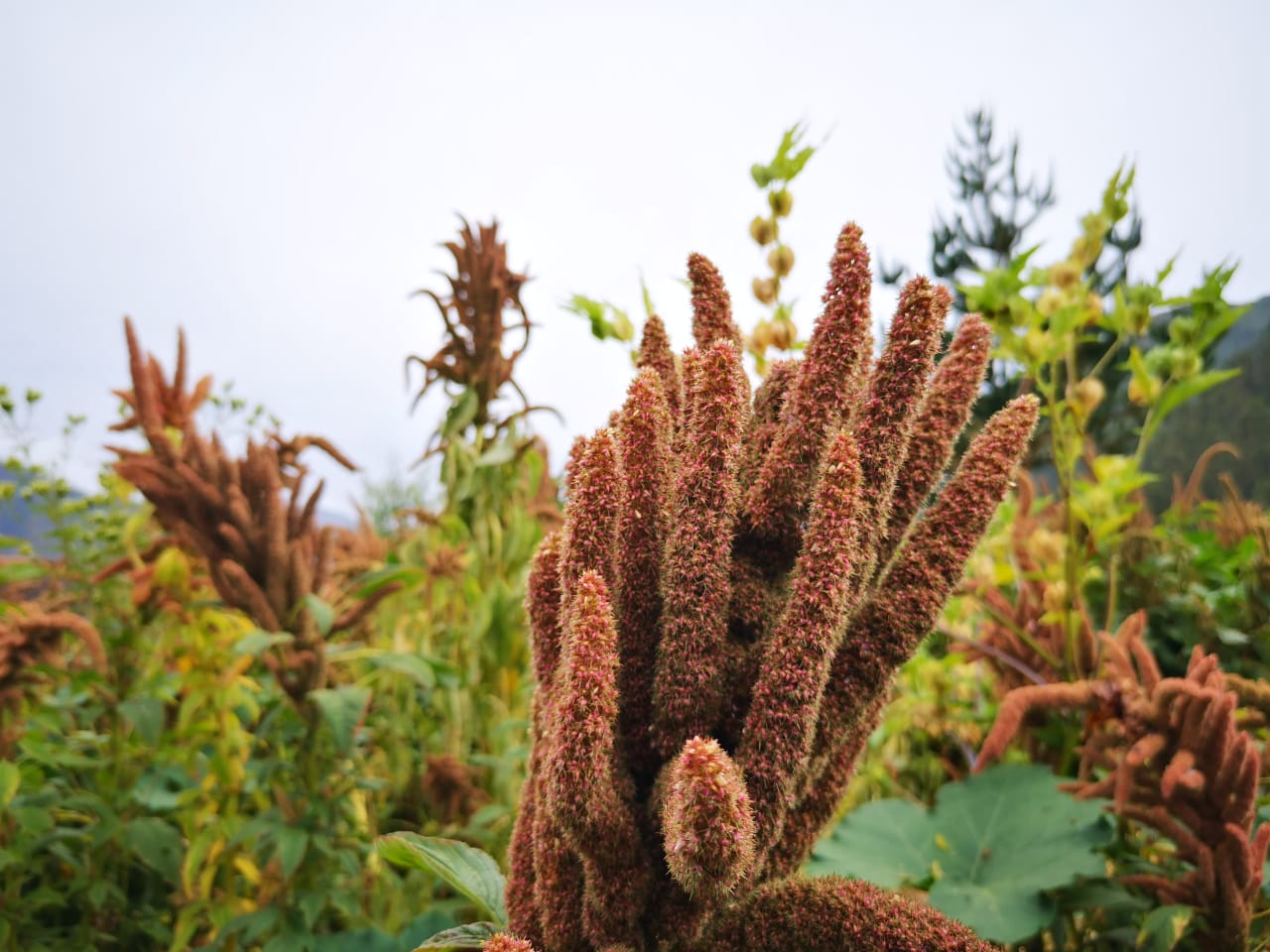
In order to offer sustainable support, the farmers have had to come to an agreeance of who will grow what and how much. With a diverse set of quality products that are based on an accurate projection of demand, they can avoid both internal competition and wasteful surplus of goods.
Over time, the Masa Salvaje team will be working alongside farmers in developing the means to grow wheat—testing the soil in various altitudes, along with wheat varieties. (Strangely enough, Peru, a country known for its gastronomy, imports nearly all of its wheat for commercial bread baking.) Once they can supply their own wheat, Francisco looks forward to teaching locals to mill wheat and bake bread using a yeast starter and their own nutrient rich pseudo-grains.
“By giving locals better access to markets, a fair price for their Andean grains, as well as providing the technical knowledge for sustainable farming and bread baking, they’ll improve their standard of living,” says Francisco. “And though we may not realize it, their well-being has an effect on us as consumers.”
Photo credits: Erick Andia, Masa Salvaje
About the author
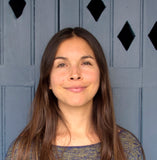 An Oregon native, Agnes Rivera has been living, writing and eating her way around Peru since 2012. Her favorite way to catch inspiration is by chasing it on her bike or by foot—an adventure that often ends in lollygagging along Lima’s famed coastal pathway, the malecón, as she savors a scoop of lucuma gelato. Follow her various writing projects on Instagram.
An Oregon native, Agnes Rivera has been living, writing and eating her way around Peru since 2012. Her favorite way to catch inspiration is by chasing it on her bike or by foot—an adventure that often ends in lollygagging along Lima’s famed coastal pathway, the malecón, as she savors a scoop of lucuma gelato. Follow her various writing projects on Instagram.

